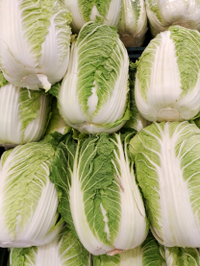
Photo from wikipedia
Sclerotinia sclerotiorum (S. sclerotiorum) is a soil-borne pathogen causing serious damage to the yield of oilseed rape. Selenium (Se) acted as a beneficial element for plants, and also proved to inhibit… Click to show full abstract
Sclerotinia sclerotiorum (S. sclerotiorum) is a soil-borne pathogen causing serious damage to the yield of oilseed rape. Selenium (Se) acted as a beneficial element for plants, and also proved to inhibit the growth of plant pathogens. However, whether Se could reduce S. sclerotiorum infection in oilseed rape, the related mechanism is still unclear. In this study, proper Se levels (0.1 mg/kg and 0.5 mg/kg) applied in soil decreased the lesion diameter and incidence of S. sclerotiorum in rape leaves. Se enfeebled the decrease of net photosynthetic rate (Pn), stomatal conductance (Gs) and transpiration rate (Tr), and maintained leaf cell structure. Se enhanced the antioxidant system of leaves, as evidenced by the maintenance of mitochondrial function, reduction of reactive oxygen species (ROS) accumulation and malondialdehyde (MDA) content, and the improvement of antioxidant enzyme activities including catalase (CAT), polyphenol oxidase (PPO) and peroxidase (POD). The upregulated defense gene expressions (CHI, ESD1, NPR1 and PDF1.2) of leaves were also observed under Se treatments. Furthermore, metabolome analysis revealed that Se promoted the metabolism of energy and amino acids in leaves infected with S. sclerotiorum. These findings inferred that Se could act as a potential eco-fungicide to protect oilseed rape leaves from S. sclerotiorum attack. The result arising from this study not only introduces an ecological method to control S. sclerotiorum, but also provides a deep insight into microelement for plant protection.
Journal Title: Environmental pollution
Year Published: 2019
Link to full text (if available)
Share on Social Media: Sign Up to like & get
recommendations!